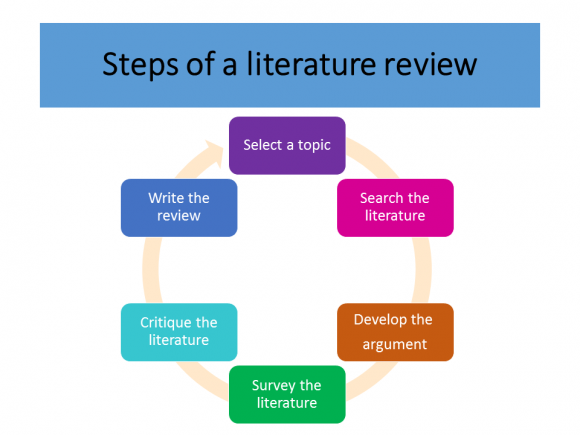One of the first things that you encounter in your research journey is the Literature Review. It deserves capitals, because it is truly one of the beasts of academic writing. For this reason, I will speak to the literature review, revealing tips and tricks relating to it, in three different posts. This first post is a general overview of the literature review.
Perhaps the first thing to look at is why it is such a beast – the definition of a literature review is not simply that of a summary of literature, but it is much more complex:
“A literature review is a critical evaluation, summary and explanation of the complete and current state of knowledge on a limited topic.”
So using this definition above, it can be seen that instead of just parroting the literature, an entire process takes place which includes critically thinking about the literature, applying it to your topic, evaluating the literature for both its strengths and its weakness, and attempting to guarantee that the literature you have found is a complete picture of all the literature written on that topic.
Breaking it further down, reading an article becomes a process that involves questions such as
- What is the importance of this article?
- What was the methodology used – is this methodology also applicable to my study?
- Have further studies been conducted since this article?
- Is there bias in this article / does it appear to contain no flaws? What is the quality of this article – is the data reliable?
- What theme / subtheme of my study does this article speak to?
- What are the criticisms that can be levelled at this article – is the sample size big enough, is the article generalisable, have the authors conducted a proper data analysis?
It is no longer simply understanding the article that is needed, but also looking at it through a critical lense and seeing how the article is applicable to your study as well.
If this seems intimidating, then don’t worry – you are feeling the same as postgrads and researchers feel world wide. But we in the library specialise in working with information, and evaluating it – so we are here to help you!
Firstly – when writing the literature review, follow the following steps:

- Once you have selected your topic, use that to conduct your search for the literature. If you are worried about whether you are conducting a complete search of all the literature or not, make an appointment with your Faculty Librarian who can show you some very useful tips on how to modify your searches so that you waste less time, get more effective results and overall, cause less frustration for yourself. The library also runs classes on how to improve your literature searching strategy if you would first want to rather try that.
- Developing an argument is the point where you are trying to find what your literature review is trying to say overall. Is it trying to say that what you are studying is niche or has been studied in the past but not in the same way? Is it trying to build on many previous studies, or is it identifying the gaps in previous studies, or is it doing both?
- Surveying and critiquing the literature is where you see if you have covered all your bases, you identify the articles and critically evaluate them while tying them to your topic and showcasing why they are important to your study.
- Lastly, it seems now that writing the review should be a piece of cake, right? Well often this is where stumbling blocks come in – you have missed some of the steps above, or you have done the above but somehow the words don’t seem to be flowing. Nevermind – this is where perseverance comes in. Writing everyday is essential – even if it is a paragraph only. When you reach the point of having written all your paragraphs, you can revisit the whole section and make the words tie in together more. And when you feel you are even a little bit stuck or really stuck – make use of the Writing Lab who offer free writing consultations for students. Even better – every Tuesday and Thursday from 14:00 – 16:00, there are consultants from the Writing Lab ready and waiting to assist in the Research Commons. Speak to one of the librarians to book your slot!

This post is the first part in a three part series on Literature Review. The next two posts will cover tips and tricks on creating a topic, searching the literature and organising your literature.